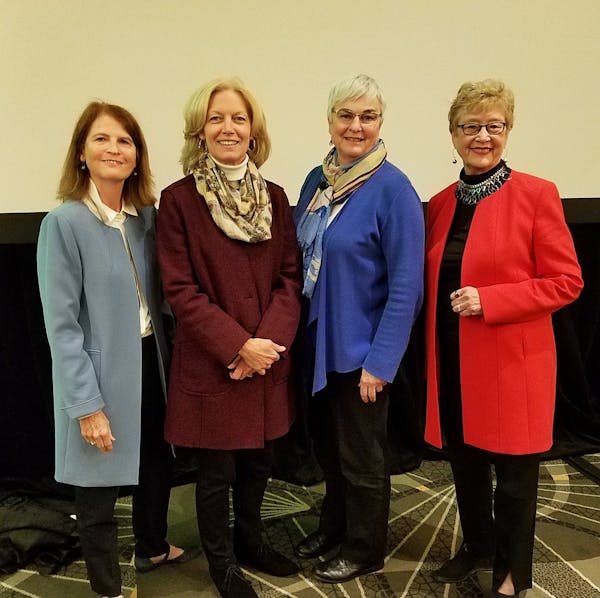Smart Care, which repairs commercial kitchen appliances and posts $200 million-plus in revenue, was spun off from Ecolab in 2018 with a plan.
"We've acquired four businesses," said CEO Bill Emory, an Ecolab veteran who has turned Smart Care into an independent St. Paul-based company of about 1,000 employees. "I expect we'll have more news in the future. We're executing on our plan."
That's a big enterprise compared to most St. Paul-based businesses, though not so much by Ecolab standards. And commercial-appliance repair, albeit profitable, didn't fit as well as Ecolab diversified in other directions.
Smart Care, which is developing national span in a fledgling industry, was acquired by Boston-based Audax Group, a huge private-equity firm that buys businesses, invests in growth and tries to sell them or take them public at a profit five to seven years later.
The Audax sale has freed Smart Care to find its own way as a business that no longer has to compete for growth capital against larger, more popular siblings within Ecolab, which has become a $13 billion company focused on commercial building sanitation, water and energy businesses.
And Smart Care is a poster child for what is driving the still-warm mergers-and-acquisition business more than a decade after the longest economic recovery in history that followed the Great Recession of 2007-2009.
Sean Kearney, a business lawyer at Minneapolis-based Fredrikson & Byron, which represents Audax and Smart Care, said more than two-thirds of the deals last year were driven by so-called "add-on" acquisitions, in which a platform-company such as Smart Care adds business through acquisitions.
In fact, investment banker and research firm Baird said in its 2020 outlook that the number of U.S.-based deals of up to $1 billion rose 14% last year, thanks to a 27% increase in transactions valued at up to $100 million. There were fewer megadeals of $1 billion-plus.
In short, there were more, smaller deals.
"You're seeing more corporate divestitures," said Kearney, adding that there otherwise are fewer companies for sale this deep in the recovery.
And U.S. middle-market companies, those valued at $100 million to $1 billion, are commanding premium prices of up to 10 times operating earnings in what remains a sellers' market, marked by historically low interest rates, thanks to the Federal Reserve, and a slow-growth economy where it's cheaper to buy sales than earn them organically.
The trend toward more, lower-priced transactions is particularly pronounced in Minnesota.
According to Dealogic, a financial-data provider, there were 147 transactions in Minnesota in 2019 valued at a total of $10.6 billion. That compares with 135 transactions valued at $22.9 billion in 2018.
"There's a scarcity of [target] assets," said Ryan Miest, a veteran M&A lawyer at Fredrikson.
Last year, Fredrikson closed 300 transactions in the still-growing sweet spot of the M&A market, through deals of $50 million to $750 million for dozens of clients.
The U.S. economy grew only about 2% last year, despite efforts of the Trump administration to keep money cheap and prime the pump with record federal deficits in a healthy economy.
Regardless, the outlook remains positive, at least for the first few months of 2020.
Twin Cities-based Merrill Corp. provides virtual data-room software that helps dealmakers with their due-diligence process. As a result, the company has pretty good window into deal activity.
CEO Rusty Wiley said Merrill hosts about 10,000 projects a year, of all sizes, in approximately 180 countries. More than 200,000 participants use their DatasiteOne product, including investment bankers, private-equity professionals, lawyers, accountants and corporate staff.
"We kind of operate like the canary in the coal mine. Because we know six months ahead of deals being reported kind of what's going on in M&A because they are opening the data room on our platform in the very early stages of doing a transaction," Wiley said.
Merrill can look at the number of virtual rooms opened every week and every month and predict from there what the M&A activity will be in six months. Merrill also mines information from its data rooms to spot trends, including deal duration and data-room size.
Based on the volume of data rooms being set up on its platform, Wiley remains bullish so far on the first half of 2020.
"Most of the investment bankers, private equity, as well as the corporations and lawyers that we are in touch with every day … are relatively positive," Wiley said. "The next bout of uncertainty will come around the elections late in the year. But the first half of the year looks pretty strong."
Bloomington-based Toro is spending $167.5 million to broaden its portfolio of turf equipment and snow- and ice-management products.
Toro is acquiring Venture Products Inc., which makes a variety of tractors and attachments under the Ventrac brand.
Ventrac products are used in the turf- and grounds-management industry and known for handling tough terrain like steep hillsides and soft ground. Its versatile small-tractor platform also accepts 30 attachments that tackle a variety of jobs including snow and ice management, grass and brush mowers and a variety of specialty soil and site-preparation tools.
"Ventrac is well recognized in the industry for its market-leading innovation and commitment to meeting the diverse needs of customers," said Toro's chairman and chief executive, Richard Olson, in a statement. "This acquisition supports our growth strategy in the professional market with the addition of a strong brand and expanded product offering to customers in the turf, landscape, and snow and ice maintenance categories."
Venture is owned and run by the Steiner family, which had developed and made agricultural equipment and tractors before starting the Ventrac brand in 1996. The company has 325 employees and about $100 million in annual revenue.
"We are excited to become a part of the Toro Co. and its family of leading brands," said Venture Chief Executive Dallas Steiner. "The Toro Co. is committed to a culture that aligns with our employee values, has a rich history of success in the marketplace and a proven track record of growing their brands."
Neal St. Anthony • 612-673-7144 Patrick Kennedy • 612-673-7926
Boeing's financial woes continue, while families of crash victims urge US to prosecute the company
New California rule aims to limit health care cost increases to 3% annually
The Latest | Germany will resume working with UN relief agency for Palestinians after a review
Billionaire Texas oilman inks deal with Venezuela's state-run oil giant as US sanctions loom

